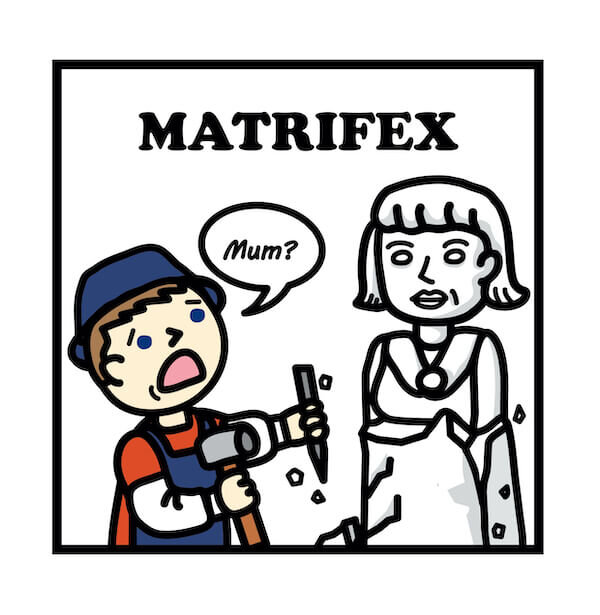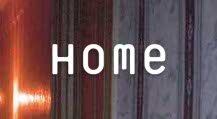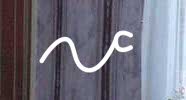Khaled Hakim reads Erotoplasty #6
We review chapbooks. We write about single poems. We even write about readings. We don't think to report on a journal unless it's a bicentennial eulogy (‘what a vital role Ambit has played in British blah blah’), and never for a single issue. And yet it can be argued that a magazine issue is as much a ‘performance’ or ‘event’ as any book launch; as much an anthology as any of those overweening compendiums.
An ephemeral poetry journal with open submissions is a cautionary tale. Each issue is a happenstance of who turns up, regardless of editorial slants and provocations. You can launch the first issue after careful, splendid preparation and thereafter it goes the direction of the ragtag that gets on board. What do editors hope for their baby? A reflection of their values and interests? Years of responsibility? Is it important that it has some great poems?
Erotoplasty has been a curious satellite beaming English from Seoul. It opened its very first PDF issue with what was my favourite poem of that year (Richard Parker’s ‘A1’), and each issue has delivered at least one extraordinary contribution. I was warned that Erotoplasty #6 could be the last (a gargantuan double-issue #7 will now scupper the ship for good). So how did this swansong rehearsal go?
On reading through the contributions #6 achieved something of a fancy of mine: a mix of the very established with the very new, where the old feel rejuvenated and relevant in company with the young, and the young feel lifted and important in company with the important. It’s this aspect that’s worth looking at.
The issue opens with a new name – Owen Brakspear – and a long poem, ‘lottery’, seamlessly wandering into another. He takes his narrative ease to meander from baroque-recondite coinage into NY School oratorical gossip, that was even more impressive on re-reading.
and so you ask amid the sex and lines and glass and renovations in ceramic
the lie of a hairline fracture in the sun,
I later learned it's Brakspear’s first published writing. It is a standout piece.
Tamsin Blaxter I recently became aware of, and that graphical eruption on the page culled from her familiarity with Old Norse/OE, Scottish vernacular, and the new demotic of text-speak is spectacular.
haunte ys just anthr word for worc. heeres end-to-proclamcioun.
heres ditten-mouþ, empti- house-cause
hus t trust a grl, a trans, hw she spekes yu hireself?
I wondered if mere self absorption was hidden beneath the poem’s pompadour and glitter – perhaps that’s the point.
Emily Martin (another new name), with her sequence '5 attempts at a bag that prefers', has a disquieting ramble into herbaceous and sexual violence, that becomes a marvellous multi-phasic narrative, that moves into earned pathos and horror.
As mothers carve sweaters in the night
Or harrow a tract for the audience
In our stables, rearing with forensic exaltation
Aodán McCardle isn’t a newbie, but I have to mention his poem that philosophizes on being and loss (reminiscent of Antin’s ‘Definitions for Mendy’) simply because it’s an age I saw anyone do that in an ‘avant-garde’ periodical. These days it’s politics all the way down. As well as ‘thisness / and hereness / and notness’, his lines bring you to a standstill:
a wellington is a lie
with a slit in its sole
And an honourable mention for the verve of S R Shah (again new to me):
my bedmate is the uncapped,
miniature screwtop jar with slices of valium
So what of the ‘name’ poets?
Harriet Tarlo, Anthony Mellors, Frances Presley, even the consummate John Wilkinson: all suffer in the company of the young guns. Their prosodic ambitions are to be seen in relation to their own ouevres, and seem dulled or modest compared to tyros determined to make a splash. As a case in point, John Wilkinson suffers from such an obdurately high craftmanship coupled with an established style that we can ask, in what way is a sequence by John a surprising departure? On the surface, I wouldn’t know if these poems are new or from 1990.
New poets make their submissions largely for the same reason – to up their profile and visibility – while established poets can contribute for other reasons: to test out new or forgotten material, to toss scraps from the master's studio, to promote the new book. But theirs is the privilege of a name. There’s nothing new in this: crinkly singer-songwriters clog up the charts long after they were vital, while the unknowns struggle for their audience. (It will come to you Young Turks! – everything of interest said in your first two chapbooks and from then on it’s treading water!)
It may as well be reiterated that the magazine poem has its biases: we self-select for those writings with more obvious poetic or attention-seeking qualities. It seems to me that the doyen’s poem of ‘the middle way’ – not too blank, not too chaotic, not too tractable, not too hermetic – is at a disadvantage. It finds its natural habitat in a book, where it builds its case for the author in confederacy with the other poems, and links to previous work. In Erotoplasty it only makes the case for the young venturers.
Erotoplasty #7 will launch online in two separate volumes to immolate its chieftain and vassals thereafter to rest in Valhalla





